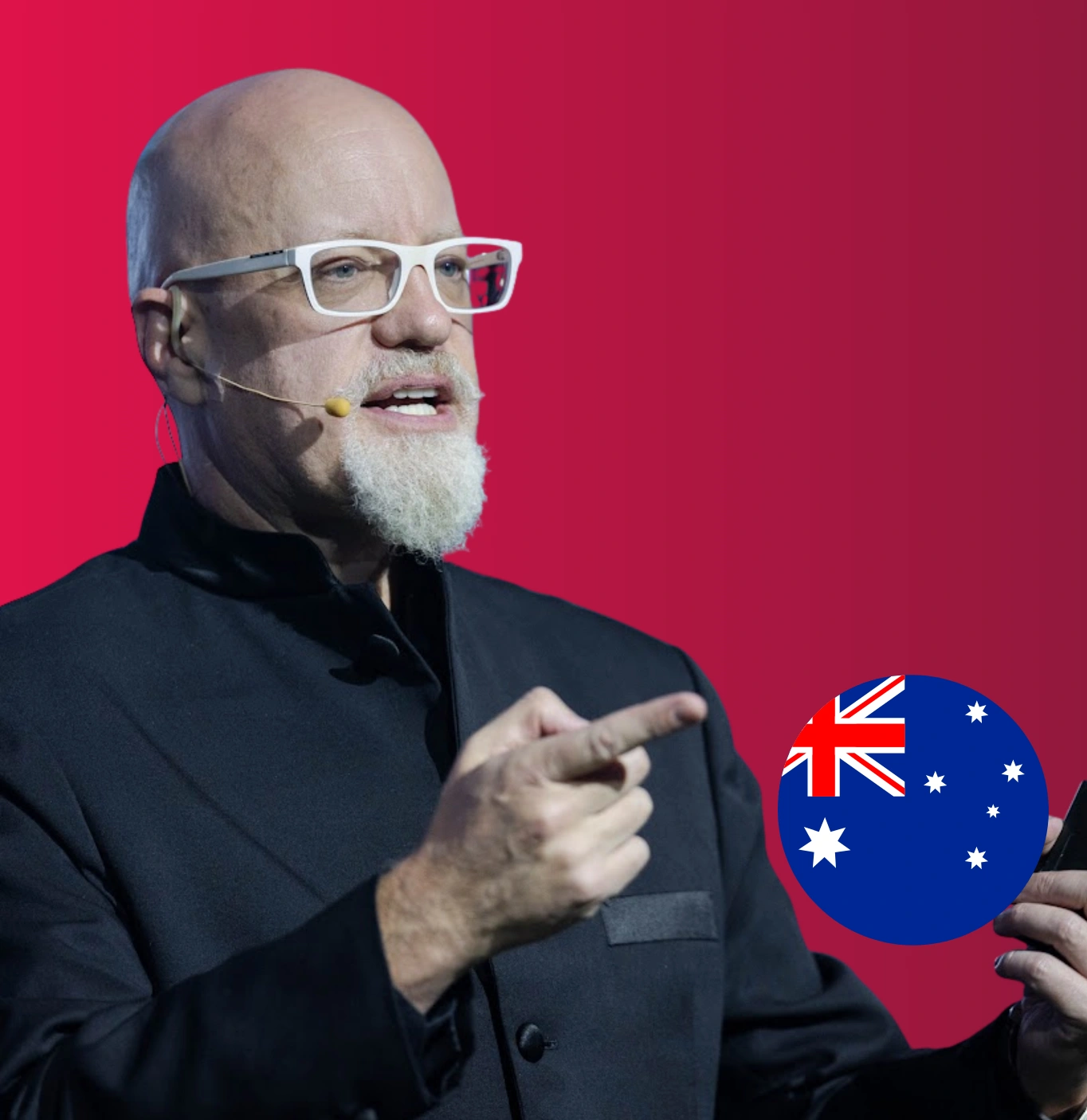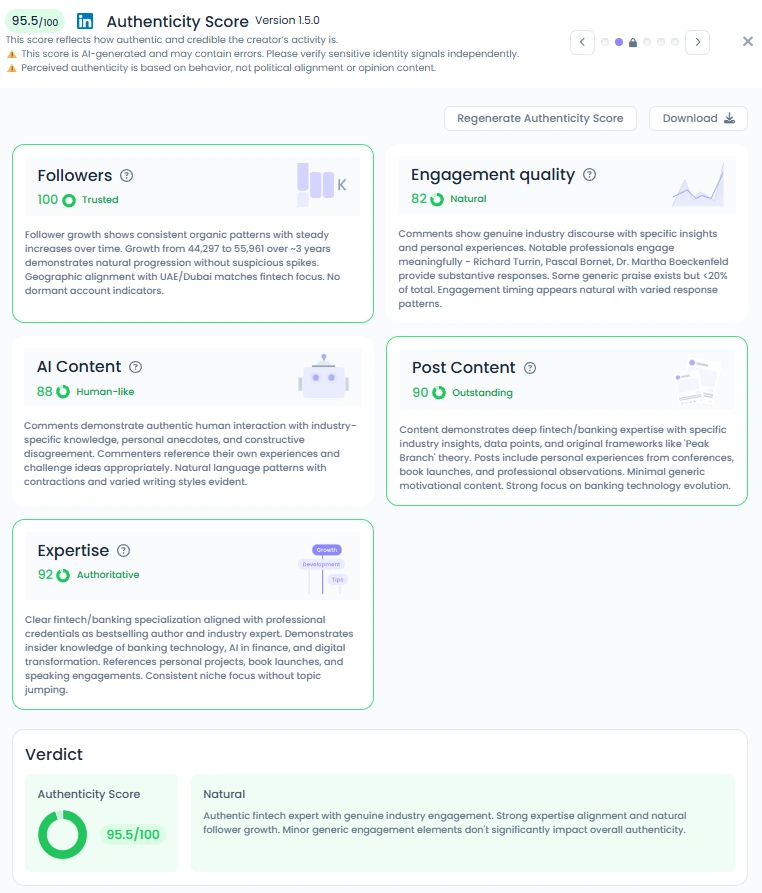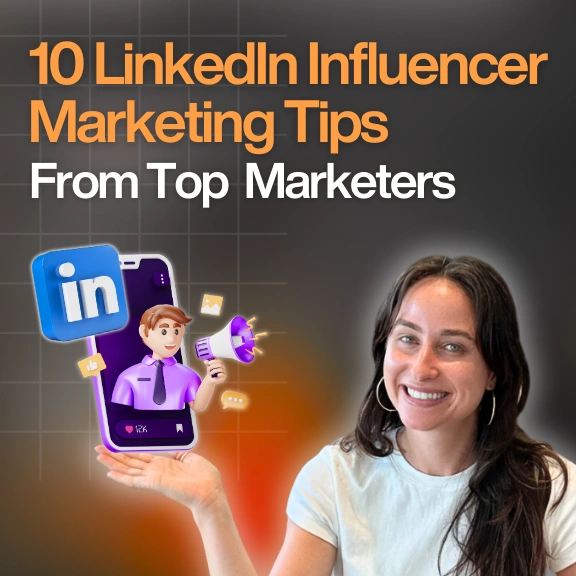Blog & Articles
Your ultimate ressource for the creator economy
Methodology & Rankings
About Favikon, rankings, tools & much more.
Insights
The recipe behind Favikon's viral & coveted rankings.
Free tools to power your influencer marketing workflows.
See Favikon users' success stories.
Get access to all Favikon rankings.
Become a Partner
Become an Affiliate
About the team behind Favikon
The place to talk creator economy, together


Featured Rankings

Here is the Top 50 Rising Video Creators on LinkedIn. Video is quickly becoming the platform’s most powerful format, with creators gaining more reach and engagement than ever. As Gen Z grows its presence and tools like BrandLink and Thought Leader Ads support content creation, LinkedIn is doubling down on video. This ranking, made in partnership with OpusClip, celebrates the creators leading this shift and aims to inspire anyone ready to start sharing through video.

Here is the Top 50 Rising Video Creators on LinkedIn. Video is quickly becoming the platform’s most powerful format, with creators gaining more reach and engagement than ever. As Gen Z grows its presence and tools like BrandLink and Thought Leader Ads support content creation, LinkedIn is doubling down on video. This ranking, made in partnership with OpusClip, celebrates the creators leading this shift and aims to inspire anyone ready to start sharing through video.
Who is Brett King?
Brett King speaks the future of banking in plain, provocative language. He mixes keynote energy, book ideas, and practical takes on digital transformation.

.png)

Elena Freeman designs partnerships and events at Favikon. She cares about building spaces where creators, brands, and ideas meet in ways that feel real and memorable. From partner programs to community gatherings, she focuses on making connections that spark collaboration and professional growth.
Check Brand Deals
Brett King: Futurist voice turning fintech theory into sharp, usable insight
Brett King speaks the future of banking in plain, provocative language. He mixes keynote energy, book ideas, and practical takes on digital transformation. His posts are part analysis, part storytelling, and always pointed. People follow him for big-picture frameworks that still land on real business choices.
1. Who he is
Brett is a bestselling author, futurist, and founder who has built a career at the intersection of banking, digital transformation, and AI in finance. He writes and speaks about the future of money, the evolution of customer experience, and how institutions must adapt. His background spans books, media, and founding The Futurists, giving him both thought leadership and platform reach. He often surfaces frameworks and provocative questions that help executives rethink product strategy and operations. That mix of storytelling, research, and practical framing makes him a persistent voice in fintech debates.
2. A Network of Heavyweights
His network includes fintech startups, legacy banks, payment networks, and high-profile conference organisers. Logos and connections on his map show ties with industry players, media outlets, and authors in adjacent fields. That mix gives him both sector credibility and media amplification for his ideas.

3. Why people listen

Brett writes with authority and personality. He frames complex trends in memorable language and uses sharp examples from events and launches. His posts blend deep industry knowledge with a contrarian streak that invites discussion. Followers engage because his content provokes thinking and offers useful language for strategic conversations.
4. Authenticity that resonates

Favikon rates his authenticity at 95.5 out of 100. His engagement looks human and substantive. Comments show debate, praise, and further examples rather than generic applause. He shares conference clips, book launches, and candid commentary which together signal a genuine, public-facing expert rather than a curated persona.
5. Numbers that back it up

His follower base has grown from about 44,300 to 55,900 over roughly three years, showing steady organic reach. Influence Score sits at a mid-level 5, supported by consistent content performance across platforms. Engagement quality is solid, with industry peers contributing thoughtful responses. His post content and expertise indicators score highly, reflecting strong alignment between his profile and his subject matter.
6. Collaborations that matter
Brett partners with conferences, financial institutions, authors, and media outlets to promote fintech thinking. He appears at global summits, podcasts, and book events that amplify his frameworks. These collaborations help shape executive conversations and influence industry narratives.
7. Why brands should partner with Brett King
Brett is a good fit for brands aiming to influence executive audiences and shape market narratives.
- Thought leadership series that position a brand within future-of-banking conversations.
- Keynote or moderated stage appearances at major industry events.
- Co-produced research or white papers that translate trends into strategy.
- Media partnerships that extend a campaign through podcasts, video, and books.
8. What causes he defends

His profile shows interest in climate change, financial inclusion, and AI for good. He frames fintech as a tool that can expand access to finance and reduce systemic frictions. His writing often explores how technology can both create risk and unlock inclusion, arguing for frameworks that steer innovation toward measurable social outcomes. These themes appear across talks and published pieces, keeping social impact part of his futurist agenda.
9. Why Brett King is relevant in 2026
Banks and fintechs will still be wrestling with AI, platform models, and customer experience evolution. Brett’s role as a translator of those trends remains useful for leaders who need clear frameworks and narrative language. His blend of futures thinking and operational examples helps teams create concrete plans rather than abstract predictions. That pragmatic futurism keeps him relevant as technology and regulation reshape finance.
Conclusion: A Guide to What Comes Next
Brett King combines imaginative scope with clear, actionable framing. He helps leaders see beyond the next product sprint and ask smarter strategic questions. For organisations that want to shape the future of finance, his voice provides both inspiration and a practical roadmap. His impact is in helping others move from idea to execution with urgency and clarity.
Related Articles
See all the articlesResources











.png)








